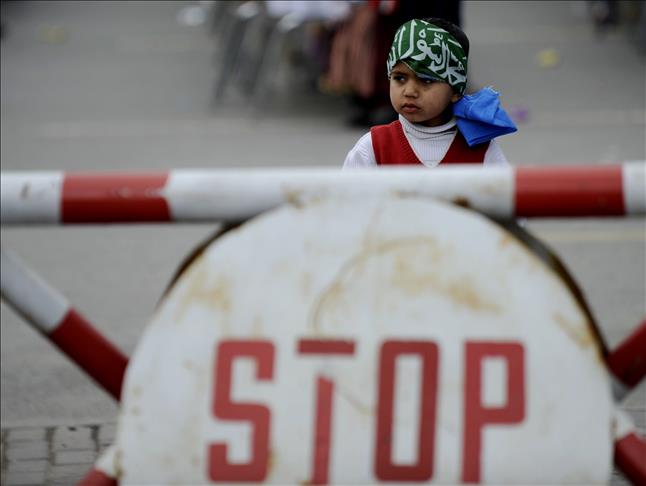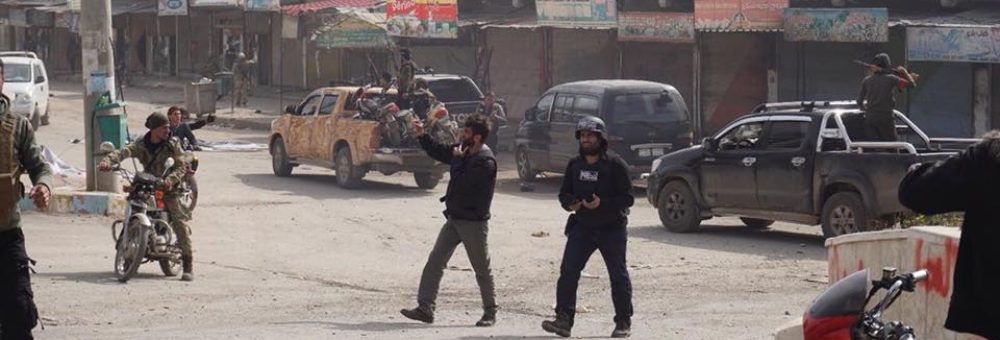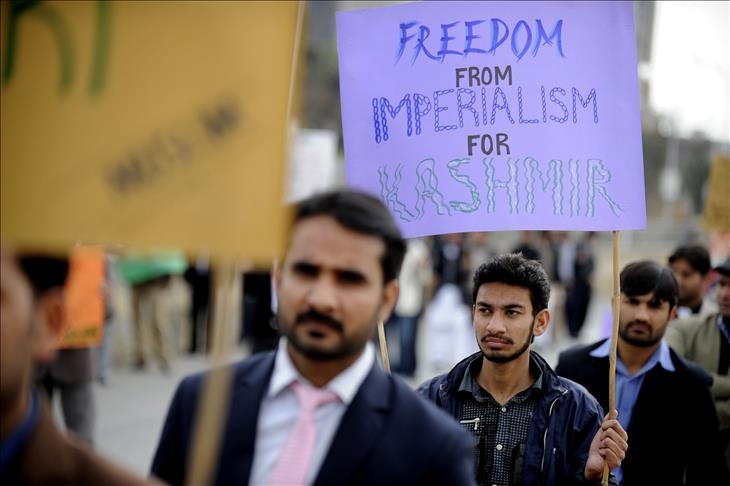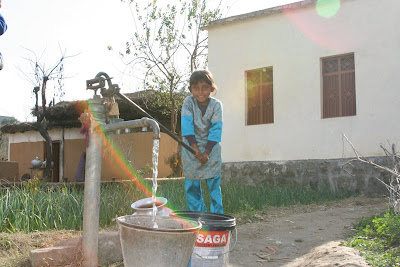‘My son was picked up by security forces in 1990, I have not seen him since,’ said Parveena Ahanger, the head of ‘the Association of Parents of Disappeared Persons’ in Indian-held Kashmir.

LONDON
It’s been 24 years since she last saw her son. An arduous 24 years during which Parveena has struggled to find out what happened to 16-year-old Javid Ahmad Ahanger after Indian security forces picked him up in Kashmir.
“My son was picked up by security forces in 1990, I have not seen him since, she said. I looked for him at the police station, hospitals and detention centers but I did not find him.”
Parveena Ahanger, the head of the Association of Parents of Disappeared Persons in Indian-held Kashmir that she started in 1994, pled Monday for the British people to lobby their government to put pressure on India over human rights abuses in Kashmir.
“I request you approach the British Parliament and ask them to put pressure on the Indian government,” she urged participants at a conference in London called ‘Kashmiris: Contested present, possible futures’.
She burst into tears as she conveyed her 24-year struggle and the similar stories of other families of conflict-riddled Kashmir to the London audience.
“[My son] committed no crime, they just took him,” she continued. “Many others have also been taken and the families have no idea what happened to their loved ones.”
“I went to the courts that are supposed to give justice, but I found no justice there,” she added.
Parveena has traveled across Kashmir and gained support from other families whose loved ones have also been taken by Indian security forces, never to be seen again. In 2005, she was nominated for a Nobel Prize.
Her association organizes protests every month in Srinagar, located in the Kashmir valley, over the issue of enforced disappearances.
“I will only call myself a mother on the day I find out what happened to my son,” she lamented as she wondered aloud who would campaign for the children that have disappeared, once their mothers died.
Independent human rights groups have estimated that 8,000 to 10,000 such disappearances have occurred in Indian-administered Kashmir over the last 24 years.
She said: “There have been people who have been killed in Kashmir, but they have graves for them.
“We don’t have any graves because we do not know what happened to our loved ones.”
Since independence from the British colonial rule in 1947, both Pakistan and India have been engaged in a bitter conflict over Kashmir, which is split between the two countries. The two nuclear powers have already fought two wars over the region, of which two thirds are now controlled by India.
India estimates the death toll of the Kashmir conflict over the past two decades to be around 48,000. However, the region’s main separatist group, the All Parties Hurriyat [freedom] Conference speaks of 100,000 casualties. Amnesty International has repeatedly called for forensic experts, in line with UN protocol to investigate mass grave sites, which the human rights organization numbers in the hundreds.
One of the conference organizers, Goldie Osuri, assistant professor in sociology at the University of Warwick, whose latest book published in 2013 is called “Religious Freedom in India,” described the current situation in Kashmir as “not just colonization and occupation, […] we can use the term genocide.”
Parveena told the Anadolu Agency that she did not expect much from newly elected Prime Minister Narendra Modi.
“He did not do enough in Gujarat” she told the AA, referring to his alleged role in the three-day Gujarat riots of 2002 in western India, where more than a thousand people were killed, most of them Muslims. Narendra Modi was Gujarat’s chief minister at the time.
Read the original article published in Anadolu Agency on 2 June 2014


 In Pakistani-administered Kashmir this small refugee camp is home to some 600 people who have fled Indian-administered Kashmir, 16km from the line of control. This is the line of the world’s most militarised zone. Since the Mumbai attacks and continued Indian allegations of Pakistani involvement tensions are once again forcing people to fortify their bunkers as they brace themselves for a potential confrontation.
In Pakistani-administered Kashmir this small refugee camp is home to some 600 people who have fled Indian-administered Kashmir, 16km from the line of control. This is the line of the world’s most militarised zone. Since the Mumbai attacks and continued Indian allegations of Pakistani involvement tensions are once again forcing people to fortify their bunkers as they brace themselves for a potential confrontation.